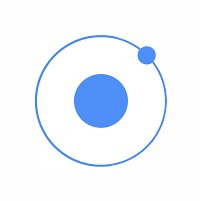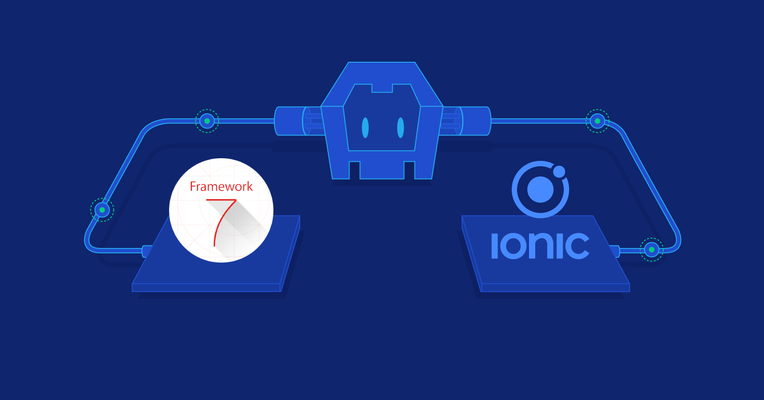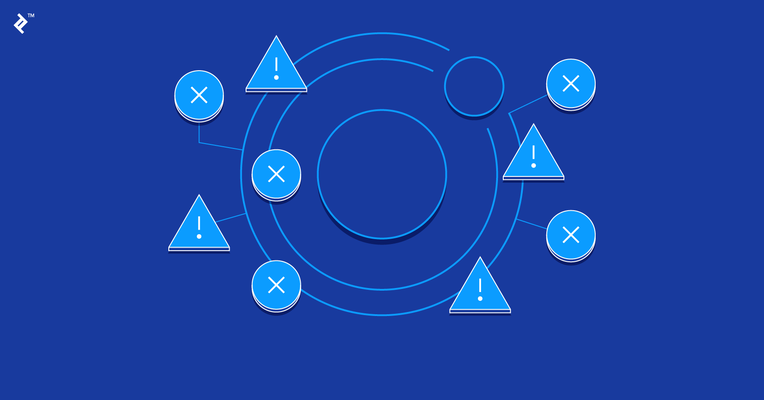
Hire Ionic Developers
Hire the Top 3% of Freelance Ionic Developers
Toptal is a marketplace for top Ionic developers, engineers, programmers, coders, architects, and consultants. Top companies and startups can hire Toptal dedicated (full-time), hourly, or part-time Ionic freelancers for their mission-critical software projects.
No-Risk Trial, Pay Only If Satisfied.
Hire Freelance Ionic Developers
Valters Valdersteins
Valters is a senior programmer with several years of experience in the IT field. He hits the ground running when using new technologies and has a habit of unceasingly improving his existing skills. He's worked in variously sized companies and projects and has been mainly focusing on web development as well as SAP development. Other than that, Valters is a person with whom it's easy and fun to work with.
Show MoreDavid Pfeffer
David is a software engineer and an adjunct computer science professor at Stevens Institute of Technology in Hoboken, NJ. They've been involved in a number of startup businesses and worked in the financial services sector on high bandwidth/high transaction computing. They're an expert in C#/.NET and TypeScript, having used both since initial betas, and they do regular work with .NET Core and Node.js on the back end and React, Angular, Cordova, and Ionic on the front end.
Show MoreMetti Paak
Mehdi is a data scientist and machine learning/deep learning expert who has extensive experience in software development and mathematical/statistical modeling. He has worked in the aerospace, manufacturing, and healthcare industries developing custom, data-driven predictive software tools. He is proficient in translating business goals into data products and architecting the entire pipeline to the point of delivery. His work has led to multiple patents, publications, and successful fundraising.
Show MoreJonah Elbaz
For Jonah, delivering a project's requirements is non-negotiable. Fortified by his time as a full-stack developer, product lead, and engineering lead, tethering to the users' needs and psyche is his most powerful tool and the driving force of his delivery guarantee. Jonah believes that for a project to be successful, the objective must drive the development rather than having development limitations on the requirements.
Show MoreMichael Kowalski
Michael has an exceptional background in finance, business, and software. He is a certified SuperForecaster and MBA with knowledge of machine learning. At Credit Suisse, he produced $24 million in profit using bespoke software tools to identify statistical arbitrage transactions in the sovereign bonds of 20 countries and built a yield curve-based pricing model for Australian Bank Hybrid Bonds. Michael has industry experience in finance, energy, telecommunications, and publishing.
Show MoreSaravanakumar Subramaniam
Saravanakumar is a self-motivated IT professional with deep knowledge and proficiency in Java, JavaScript, HTML, CSS, and full-stack application development. With 12+ years of professional experience in various industries, Saravanakumar is proud to deliver efficient code.
Show MoreBrian Coords
Brian loves solving problems with WordPress. In his previous career, he was a high school and college English teacher, which is where his love for relationships, personal growth, and strong communication skill originated. His professional passions include non-profits and educational organizations.
Show MoreDaniel Charua
As a professional full-stack developer, Daniel works very well in a team. He likes the challenges that this profession demands and focuses on finding the best solutions to meet a client’s demand and help them achieve their dream projects. Daniel takes each project as if it were his own and pays attention to every detail to deliver an MVP software. He's not satisfied until the client is satisfied and the software works flawlessly.
Show MoreEric Hurt
Eric is a technical professional with 10+ years of experience architecting and building real-world solutions for clients and 6+ years leading software teams to deliver products for clients and customers. He designed and developed multiple enterprise-level solutions for Fortune 100 companies and founded his own startup, connecting thousands of customers and stores. As a CTO, CEO, and engineer, Eric brings strong client-focused communication and project management skills to his work.
Show MoreFelipe Gaya Scandiffio
Felipe is a full-stack developer and problem solver with several years of experience and an exceptional grasp of React and Node.js. He's built the front and back ends of apps from a wide range of industries, including food & beverage, oil & gas, finance, health, and the environment. Felipe's skillset includes JavaScript, a number of frameworks (Angular, Ionic, Redux, React Native), and solutions using the cloud (experience with AWS). Felipe joined Toptal to find full-stack web projects.
Show MoreHong Zheng
Hong is a full-stack developer and architect with 15+ years of experience, specializing in Angular, Ionic, Java, Spring Boot, and AWS. His freelance enterprise engagements include IEEE, Morgan Stanley, Barclay's Capital, BNP Paribas, Goldman Sachs, and Bank of America. Hong has also led the development of apps and systems for small and mid-sized companies. He is adept at interacting with business and tech professionals and has a master's and bachelor's degree in computer science.
Show MoreDiscover More Ionic Developers in the Toptal Network
Start HiringA Hiring Guide
Guide to Hiring a Great Ionic Developer
Ionic developers are experts in building efficient, cross-platform mobile applications with modern frontend frameworks or vanilla web technologies. This guide examines the core technical proficiencies and complementary skills of top Ionic engineers and provides insights on the job descriptions and interview questions that will match you with the right expert for your mobile development projects.
Read Hiring Guide... allows corporations to quickly assemble teams that have the right skills for specific projects.

Despite accelerating demand for coders, Toptal prides itself on almost Ivy League-level vetting.









How to Hire Ionic Framework Developers Through Toptal
Talk to One of Our Client Advisors
Work With Hand-selected Talent
The Right Fit, Guaranteed
EXCEPTIONAL TALENT
How We Source the Top 3% of Ionic Developers
Our name “Toptal” comes from Top Talent—meaning we constantly strive to find and work with the best from around the world. Our rigorous screening process identifies experts in their domains who have passion and drive.
Of the thousands of applications Toptal sees each month, typically fewer than 3% are accepted.
Capabilities of Ionic Developers
Toptal’s developers have extensive experience crafting mobile apps using Ionic, a dynamic framework for building cross-platform apps using web technologies. They leverage their expertise in CSS, HTML, and JavaScript/TypeScript to deliver apps with native-like experiences that perform flawlessly on Android and iOS.
Developing Hybrid Mobile Applications
Customizing Application UI Components
Integrating Back-end Services and APIs
Implementing Mobile-specific Features
Building Progressive Web Apps (PWAs)
Optimizing App Performance
Implementing Authentication and Security
Testing and Debugging Applications
Publishing Apps to App Stores
Maintaining and Updating Existing Apps
Find the Right Talent for Every Project
Senior Ionic Developers
Dedicated Ionic Developers
Offshore Ionic Developers
Remote Ionic Developers
FAQs
How quickly can you hire with Toptal?
Typically, you can hire Ionic developers with Toptal in about 48 hours. For larger teams of talent or Managed Delivery, timelines may vary. Our talent matchers are highly skilled in the same fields they’re matching in—they’re not recruiters or HR reps. They’ll work with you to understand your goals, technical needs, and team dynamics, and match you with ideal candidates from our vetted global talent network.
Once you select your Ionic developer, you’ll have a no-risk trial period to ensure they’re the perfect fit. Our matching process has a 98% trial-to-hire rate, so you can rest assured that you’re getting the best fit every time.
How do I hire Ionic developers?
To hire the right Ionic Framework developer, it’s important to evaluate a candidate’s experience, technical skills, and communication skills. You’ll also want to consider the fit with your particular industry, company, and project. Toptal’s rigorous screening process ensures that every member of our network has excellent experience and skills, and our team will match you with the perfect Ionic developers for your project.
How are Toptal Ionic Framework developers different?
At Toptal, we thoroughly screen our Ionic programmers to ensure we only match you with the highest caliber of talent. Of the more than 200,000 people who apply to join the Toptal network each year, fewer than 3% make the cut.
In addition to screening for industry-leading expertise, we also assess candidates’ language and interpersonal skills to ensure that you have a smooth working relationship.
When you hire Ionic programmers with Toptal, you’ll always work with world-class, custom-matched Ionic developers ready to help you achieve your goals.
Can you hire Ionic programmers on an hourly basis or for project-based tasks?
You can hire Ionic developers on an hourly, part-time, or full-time basis. Toptal can also manage the entire project from end-to-end with our Managed Delivery offering. Whether you hire a Ionic developer for a full- or part-time position, you’ll have the control and flexibility to scale your team up or down as your needs evolve. Our Ionic developers can fully integrate into your existing team for a seamless working experience.
What is the no-risk trial period for Toptal Ionic developers?
We make sure that each engagement between you and your Ionic developer begins with a trial period of up to two weeks. This means that you have time to confirm the engagement will be successful. If you’re completely satisfied with the results, we’ll bill you for the time and continue the engagement for as long as you’d like. If you’re not completely satisfied, you won’t be billed. From there, we can either part ways, or we can provide you with another Ionic developer who may be a better fit and with whom we will begin a second, no-risk trial.

How to Hire Ionic Developers
Demand for Ionic Developers Continues to Expand
According to recent research, the global mobile application development market stood at $252.89 billion in 2023, with projections for rapid growth at a 14.3% CAGR from 2024 to 2030. Amidst this expansion across various sectors, cross-platform frameworks appeal to companies for their reduced development time and costs. Ionic is a popular open-source framework for building cross-platform mobile applications, and it has been praised for its ease of use, versatility, and performance. Organizations looking to create high-quality mobile experiences for Android and iOS users often turn to Ionic experts to build cost-effective, efficient apps.
Hiring skilled Ionic developers is increasingly challenging as the demand for effective mobile app developers continues to grow. Moreover, hiring managers face challenges when sorting through a large pool of candidates: Identifying the right mix of Ionic expertise, project experience, and related web skills is not straightforward.
This guide equips hiring managers with the essential strategies and knowledge to secure a top Ionic engineer, including job descriptions and interview questions. By understanding the core skills, complementary tools, and technical expertise that distinguish the best developers, you can streamline the hiring process and drive your mobile projects to completion.
What Attributes Distinguish Quality Ionic Developers From Others?
An Ionic programmer simplifies the hybrid app development process by leveraging the framework’s capabilities to accelerate development timelines, reduce costs, and maintain consistency across platforms. They unite complex tech stacks under a single codebase where the code for iOS, Android, single-page applications, and progressive web apps can live together. Experts work with various popular development frameworks (e.g., React, Vue.js, and Angular) on the front end and access native device features to create a seamless user experience.
While programmers may use Ionic’s predesigned UI components and themes, many components are customizable; if you plan to create custom UIs or don’t have in-house designers, your candidates must be experienced with UI/UX design. Developers may also integrate apps with backend services and should be familiar with backend systems and APIs (e.g., RESTful APIs, Firebase, or third-party plugins). Finally, programmers ensure quality for mobile applications through their expertise in essential tasks like performance optimization, testing and debugging, and app deployment.
More than just mobile developers, true experts stand out through their strong competencies in Ionic’s ecosystem and cross-platform development:
Ionic Ecosystem: Experts possess a deep understanding of Ionic’s core components, like its native runtime (Capacitor), CLI, storage, components, styling, and UI layout. They stay updated on the latest releases and best practices to maximize app performance and compatibility. If you are working with a legacy app or using specific plugins, your development company may need an expert proficient with Cordova, the previous native runtime. However, Capacitor is recommended for newer projects.
Front-End and Web Technologies: Ionic engineers often specialize in a front-end framework like Angular, React, or Vue.js and understand how to use it efficiently. In particular, Ionic has mature support for Angular, and developers with Angular skills can benefit enterprise-scale apps or software development projects prioritizing stability and maintainability. In addition, proficiency in core web technologies like HTML5, CSS3, and JavaScript/TypeScript is a must. The Ionic framework is built on these web technologies, and knowing them helps a developer make the most of its features and components.
Native Feature Integration: While Ionic abstracts much of the complexity of native app development, skilled developers know how to integrate device-specific features to enhance app functionality. They have experience with Capacitor (preferred) or Cordova (legacy) plugins for location-based services, push notifications, camera access, and file system storage.
Cross-Platform Debugging: Debugging is a vital skill for any programmer, but cross-platform mobile app development involves device-specific quirks and testing tools. Experienced Ionic developers can troubleshoot efficiently, ensuring smooth functionality across Android, iOS, and web apps. They should use browser-based tools like ChromeDevTools, have experience testing on real Android and iOS devices, know CLI debugging commands, and be prepared to debug native issues in Xcode or Android Studio.
Of course, beyond technical skills, top-notch developers are also team players, as they are situated in a highly collaborative role. They should be familiar with Agile workflows and have experience working closely with designers, backend engineers, and stakeholders. Choosing an expert with the right mix of technical and soft skills will keep your project timeline and budget on track; skilled professionals can reduce time-to-market, minimize post-launch fixes, and create exceptional mobile experiences across devices.
How Can You Identify the Ideal Ionic Developer for You?
Finding the right Ionic programmer requires a nuanced approach, aligning candidates’ expertise with your project goals. Whether you plan to maintain a legacy app with Cordova, build a cost-effective app from scratch, or optimize mobile performance, narrowing in on your specific developer requirements is critical for success. The first step in the hiring process is to assess your business needs and pinpoint the gaps you want to fill.
To start, consider the complexity and scale of your app. Are you building a simple proof-of-concept or an enterprise-scale app? If your needs are straightforward, a junior Ionic engineer with only a few years of experience might suffice. However, for apps designed for enterprise environments, scalability, security, and offline functionality are paramount, and you’ll need someone with a deep understanding of Ionic’s capabilities and backend system integrations.
Differentiating Junior, Mid-Level, and Senior Developers
Junior developers are suitable for simple, well-scoped projects where budget constraints are more critical than performance or scalability—for example, building a functional prototype for a small startup looking to validate an idea. They are proficient in using Ionic’s pre-designed components and creating basic app layouts. Junior developers have basic debugging skills but may not be prepared to solve advanced issues with native tools, and they may need to rely on tutorials, documentation, or mentorship from senior experts.
In contrast, mid-level developers independently manage app development on standard projects, like an e-commerce app that includes payment gateway integration. They can design custom UI components, integrate APIs, and optimize performance, crafting a seamless app experience across platforms. Mid-level developers understand the nuances of debugging cross-platform issues and testing apps using CLI and tools like Appflow.
Compared to mid-level developers, senior Ionic engineers stand out through their ability to tackle advanced technical challenges; they may work on cutting-edge or complex apps, like those requiring real-time geolocation updates or custom integrations with wearable devices. Senior developers have a deep understanding of the Ionic ecosystem and are prepared to integrate native functionalities via Capacitor or Cordova plugins, optimize animations’ performance and user experience, and scale apps with high traffic or significant backend dependencies. Moreover, they are team leaders with a successful track record of launching apps, handling project management, setting best practices for development teams, and onboarding new engineers.
Complementary Skills
While technical expertise differentiates junior, mid-level, and senior Ionic programmers, candidates’ effectiveness also depends on their mastery of complementary technologies. Skills like JavaScript, Angular, and API integration enable developers to build robust, high-performing applications. To keep these apps running smoothly across platforms, developers draw on thorough testing practices and familiarity with tools like Node.js and NPM. You may also consider project-specific skills. For example, does your app rely heavily on device-specific functionality, such as GPS or biometric authentication? Will it need to support offline usage or handle real-time updates? Select a developer equipped with the corresponding specializations.
JavaScript: The Ionic framework is fundamentally built on JavaScript as its core programming language, so proficiency in modern JavaScript (ES6 and beyond) is essential for handling business logic and writing clean code. A strong command of JavaScript fundamentals also ensures developers can effectively troubleshoot issues and implement best practices when working with business logic and UI components. Developers should be comfortable using advanced features such as arrow functions, async/await, promises, and destructuring. In addition, many skilled developers use TypeScript to enhance JavaScript with static typing and make code less error-prone.
Angular: Ionic apps typically rely on front-end frameworks like Angular, React, or Vue to manage dynamic user interfaces and handle state, so developers should be skilled in at least one of these frameworks. Ionic was originally built with Angular, so it is a common choice for development. Developers using Angular should be proficient in TypeScript (unless you have a legacy app using AngularJS), reactive programming with RxJS, and component-based architecture; they should also understand Angular’s dependency injection, forms, and router system.
React: React (also known as React.js) is a popular and feature-rich web development framework boasting reusable components and efficient rendering. Ionic’s React support provides access to React’s component-based architecture and hooks to manage application logic. Developers should be skilled in JSX, functional components, and state management techniques using tools like React Context or Redux. Mastery of React’s useEffect and useState hooks is valuable for handling asynchronous operations and lifecycle events.
Vue: Vue’s simplicity and gentle learning curve make it appealing if you are looking to create high-performing applications while maintaining clean and intuitive code. In other words, Ionic’s Vue integration provides developers a lightweight and flexible option for building mobile apps. Developers should be comfortable using Vue’s reactivity system, composition API, and single-file components to create modular and efficient applications. In addition, Vue Router and Vuex (or Pinia) are essential for handling navigation and state management.
Node.js and NPM: Node.js is essential for managing development workflows, from running local development servers to automating build processes. Developers should understand how to use Node.js to run tasks like local server hosting, code linting, and bundling. NPM is another critical tool for mobile app development; candidates should know how to use it to manage dependencies and third-party libraries.
API Integration: Most modern applications rely on external data sources, services, or backend systems, making API integration a critical skill for Ionic experts. Developers should understand RESTful API principles, HTTP methods, and authentication techniques such as OAuth or JWT. Additionally, familiarity with GraphQL facilitates efficient data fetching and manipulation. Look for developers proficient in handling API requests, resolving errors, and implementing caching—these skills ensure that their apps maintain smooth data flows and provide a positive user experience.
Mobile App Testing: The ability to conduct thorough unit, integration, and end-to-end tests ensures an app’s reliability and stability. Developers should have experience with unit testing frameworks like Jasmine or Jest to test individual functions and components. Their expertise in integration testing and tools like Karma ensures that various parts of the app work together correctly. End-to-end testing with Protractor or Cypress simulates real user interactions, helping developers catch bugs before deployment. Finally, candidates should be able to perform real-device testing to verify performance and compatibility across iOS and Android devices.
How to Write an Ionic Developer Job Description for Your Project
An effective Ionic developer job description aligns the framework’s capabilities with your unique project needs. Start with a clear summary of the project and the specific skills you seek. If your project requires advanced features, mention API integration, custom component development, or the use of third-party Cordova or Capacitor plugins. You should also specify whether the role is full-time or part-time and note any time zone restrictions.
Finally, crafting a well-defined role title identifying the developer level and your project requirements can go a long way. Potential roles include “Junior Ionic Developer (Angular)” or “Senior Ionic Performance Engineer.”
What Are the Most Important Ionic Developer Interview Questions?
Start your interview by asking generally about a candidate’s experience building cross-platform apps. Look for developers who can speak to specific projects and outcomes, explaining their role in iOS and Android app development. Next, focus on Ionic-specific skills and assess their proficiency in related technologies like Angular, React, or Vue.js.
How do you structure a mobile project for scalability and maintainability?
A well-structured app reduces costs in the long run by minimizing refactoring needs and making onboarding easier. Strong candidates will mention organizing reusable components, lazy-loading modules to improve performance, and separating business logic from UI components. They should also discuss the importance of using state management libraries (e.g., NgRx or Redux) to handle complex states. Finally, they may discuss techniques like minimizing app bundle size, optimizing images, and using hardware acceleration for animations. The best candidates will identify tangible improvements they’ve made to previous apps.
How do you ensure smooth animations and transitions?
Animations play a significant role in a mobile app’s user experience. While good animations make an app feel more responsive and boost engagement, poor animations result in a sluggish app and user churn. Look for responses detailing Ionic’s built-in CSS utilities and animations API. Strong candidates will mention optimizing animations with hardware acceleration (e.g., transform or opacity rather than properties like top or left) and leveraging tools like requestAnimationFrame to control animation timing and achieve smooth transitions.
How do you handle platform-specific issues when building an app?
Effectively handling the design guidelines and native features of different platforms ensures a seamless user experience across Android and iOS devices. Candidates should discuss using Ionic’s platform-specific classes (e.g., platform.is()) to adjust layouts or behaviors for iOS and Android conditionally. They should also mention Capacitor plugins for native device functionality and platform-specific debugging tools.
What debugging tools or techniques do you use for troubleshooting cross-platform apps?
Efficient debugging is critical to delivering a polished app on time. Candidates should mention using Chrome DevTools and Safari Web Inspector for debugging web applications and views, Ionic CLI for live-reload testing, and Appflow for cloud-based testing. Advanced developers may discuss using native debugging tools in Xcode or Android Studio for platform-specific issues. They should emphasize the importance of testing on real devices and using automated testing tools to catch problems early.
Why Do Companies Hire Ionic Developers?
Ionic facilitates the creation of scalable, user-friendly apps across iOS, Android, and the web—all from a single codebase. This dramatically reduces development time and costs. Companies hire Ionic app developers because they are valuable assets for projects aiming to reach a wide audience quickly.
Expert Ionic developers leverage the toolkit’s features to deliver advanced native functionality and delightful user experiences. They can quickly build an app from scratch, maintain a legacy app, or refine the features and performance of an existing app. Beyond the front end, Ionic engineers ensure an app is integrated with vital backend services and APIs and implement rigorous automated testing to keep an app running smoothly.
Investing in Ionic’s efficient, maintainable, and cross-platform app development is a strategic business advantage. Hiring the right Ionic expert yields not only a functional app but a high-quality mobile experience that will drive user engagement over time.
Featured Toptal Ionic Publications
Top Ionic Developers Are in High Demand.




















